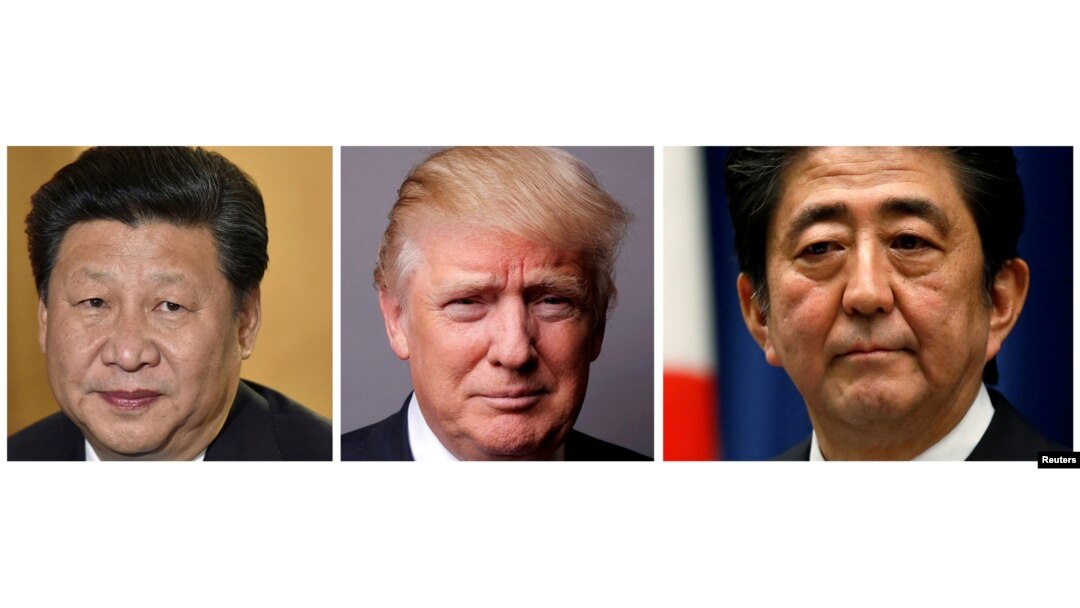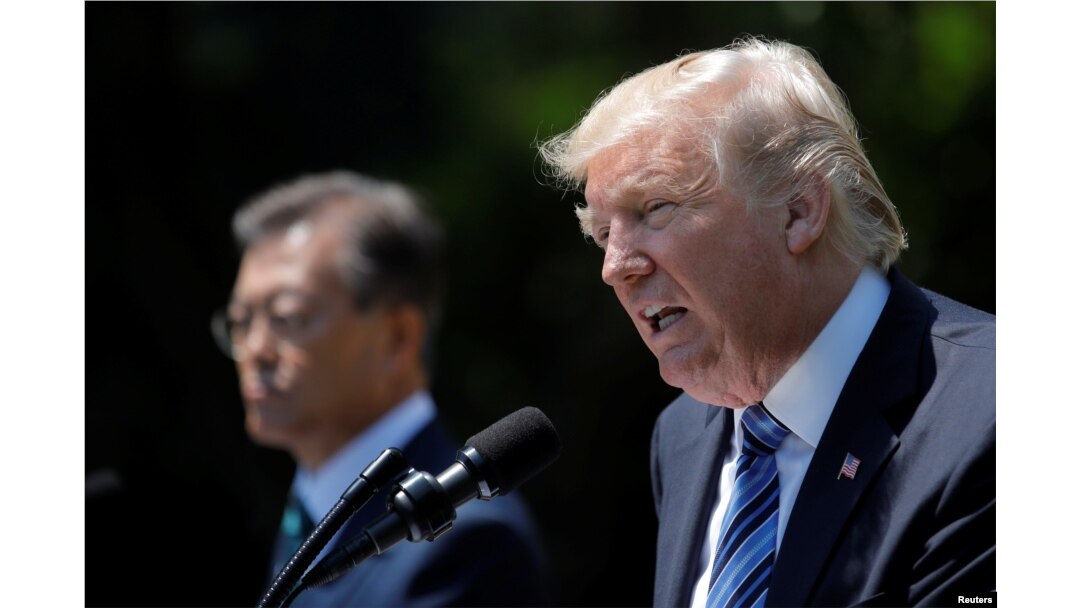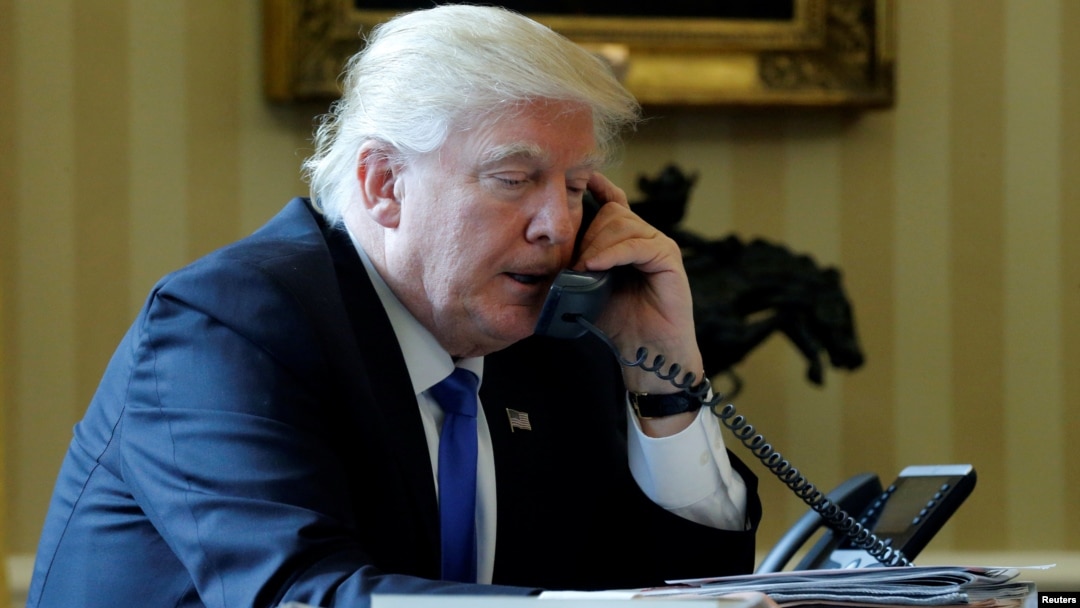U.S. President Donald Trump discussed the threat posed by North Korea's nuclear program in separate phone calls with Chinese President Xi Jinping and Japanese Prime Minister Shinzo Abe.
The White House said both Trump and Xi "reaffirmed their commitment to a denuclearized Korean Peninsula," while Trump also raised the threat of North Korea's ballistic missile program.
Chinese state media said Xi told also Trump "negative factors" have affected U.S.-China relations, and that Xi hopes Trump will appropriately handle Taiwan-related issues according to the "One China" principle.
Since 1979, the United States has recognized China's official position that Taiwan is part of China.Last week, the U.S. approved $1.42 billion in arms sales to Taiwan.
In the conversation with Abe, the White House said both leaders were united on increasing pressure on North Korea to "change its dangerous path" and that the U.S. and Japan are ready to respond to "any threat or action taken by North Korea."

FILE - A combination of photos of U.S. President Donald Trump (center) in Washington, March 1, 2017, Japan's Prime Minister Shinzo Abe (right) in Tokyo, Nov. 18, 2014, and Chinese President Xi Jinping (left) at London's Heathrow Airport, Oct. 19, 2015.
The White House statements ended by saying Trump and Xi, and Trump and Abe, look forward to meeting in person this week at a summit of G-20 leaders in Hamburg, Germany.
In addition to bilateral meetings with the Chinese and Japanese leaders, Trump is also due to hold talks with South Korean President Moon Jae-in and Russian President Vladimir Putin.

U.S. President Donald Trump (R) and South Korean President Moon Jae-in deliver a joint statement from the Rose Garden of the White House in Washington, June 30, 2017.
On Sunday, at least 10,000 people in Hamburg peacefully protested the upcoming summit — one of about 30 protests planned in the coming days — in part to protest Trump's policies, including his announced intention to pull the U.S. out of the 2015 international Paris accord to limit greenhouse gas emissions in the coming years.
Summits of world leaders often are held in exclusive, remote resorts, the easier to control security.
But that is not the case in Hamburg, by design, where German Chancellor Angela Merkel picked the city as the summit host in part to show world leaders that protests play an accepted role in a vibrant democracy.


